What kind of person attends C++ and Beyond? We wanted to know that before the event began, because we figured the more we knew about the attendees’ backgrounds, the better we could tailor our presentations to them. Now that this year’s event is over, I thought you might be interested to see what we found out about the people who joined us in Banff.
Geographically, they came from nine countries. In no particular order, those countries were Taiwan, Germany, Canada, the United States, Brazil, Australia, England, Japan, and Sweden. That means we drew people from five continents, which we were very excited about. (Assuming we do another C&B, I’m going to press for free admission for the first resident from Antarctica to register.)
Our attendees’ years of experience with C++ vary, but the vast majority have between six and twenty years:
Their adoption of C++11 (nee C++0x) features in production code was surprisingly high, with over 20% permitted to use rvalue references, lambda expressions, auto variables, and regular expressions, and even more permitted to use unordered containers, std::function and std::bind, and std::shared_ptr and std::weak_ptr:
Because Herb was giving a talk on GPU programming and I was slated to explain the C++11 memory model, we asked a number of questions about people’s experience with concurrency and parallelism. The first question asked for their years of experience with in-process concurrency (threads) other than GPU programming. Over 60% had four or more years under their belts:
When it came to GPU programming, though, nearly 90% had no experience at all. (This did not surprise us.)
The experience level picked up again when we asked about experience developing software using cross-process concurrency (separate processes) on a single machine, although nearly 20% had no experience with this kind of programming, a significantly higher value than for thread-based programming:
That number jumped to nearly 35% for cross-process concurrency (separate processes) on multiple machines (i.e., distributed computing), a sign that thread-based non-GPU concurrency is the most common form, at least among C&B attendees.
We were also curious about the size of the data sets C&B developers work with, so we asked. The values were surprisingly distributed, with roughly 20% each typically working with tens, hundreds, thousands, tens of thousands, and hundreds of thousands of megabytes of data:
On the time front, over 70% of developers described their typical runtimes as being best measured in CPU-minutes, but there were a few whose runs corresponded to CPU-Months or CPU-Years. (How’d you like to be the person responsible for a bug discovered near the end of a multiple CPU-year run?)
Finally, we asked about which of our books they’d read. Contrary to what you might think, this had nothing to do with stroking our egos. Instead, we wanted to know what kind of information attendees were likely to have already absorbed. Given a conference with the title “C++ and Beyond,” it’s not terribly surprising that Andrei’s book on D fared worse than the others. I was pleased to see that Effective C++, Third Edition got the highest ranking, because, you know, there’s something to be said for bragging rights over Herb and Andrei :-)
Worth exploring
- Casinos Not On Gamstop
- Casino Not On Gamstop
- Beste Online Casinos
- Casinos Not On Gamstop
- Non Gamstop Casino
- Casinos Not On Gamstop
- New Betting Sites
- Casino Italiani Non Aams
- Casino Sites Not On Gamstop
- UK Casino Not On Gamstop
- UK Casino Not On Gamstop
- Casino En Ligne France
- Non Gamstop Casino Sites UK
- Non Gamstop Casino
- Non Gamstop UK Casinos
- Casino Non Aams
- Best UK Online Casino Sites
- Non Gamstop Casinos UK
- Sites Not On Gamstop
- Casino Zonder Cruks
- UK Casinos Not On Gamstop
- Casino Non Aams
- Casino Sites Not On Gamstop
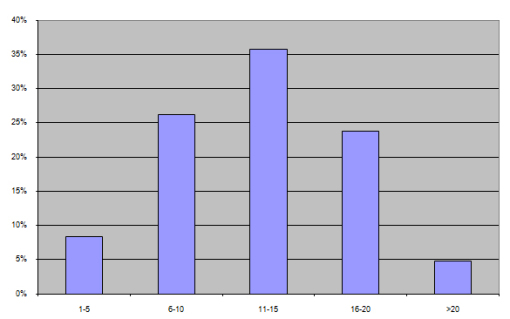
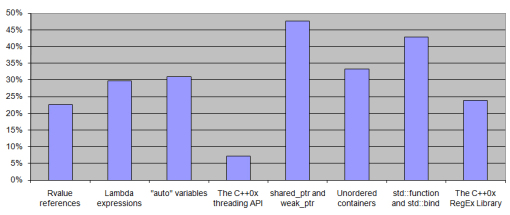
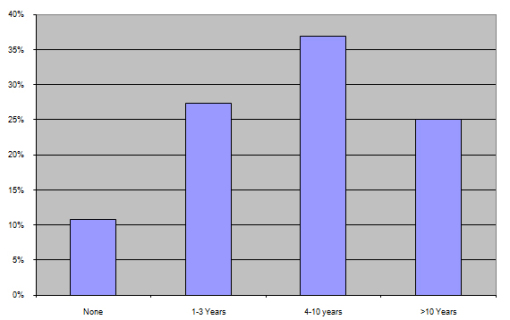
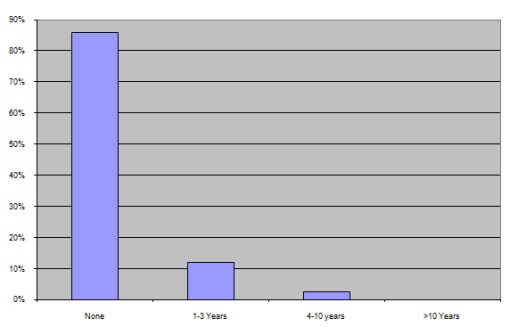
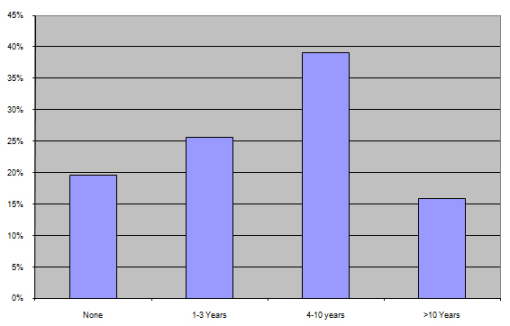
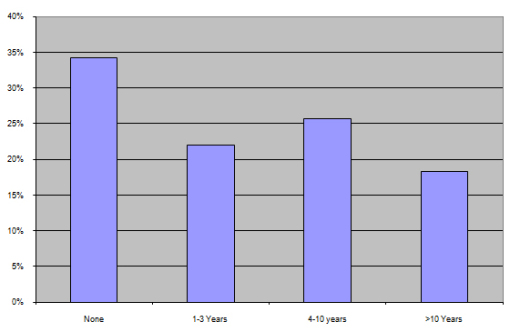
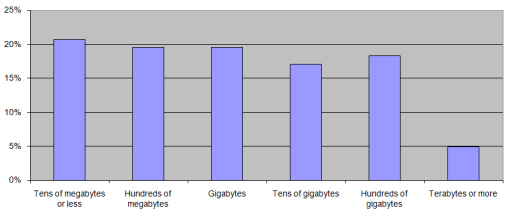
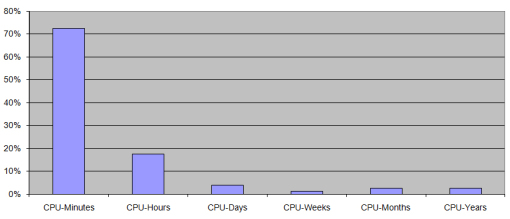
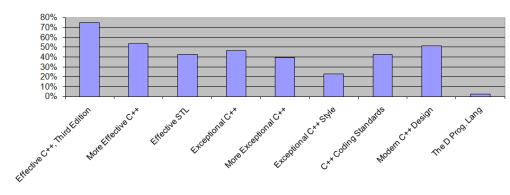
August 31, 2011 at 7:43 pm
Hi Scott, I think there were more countries. I remember speaking to a guy from Germany and another from Taiwan.
August 31, 2011 at 8:14 pm
Right you are, thanks for mentioning this. I was using the data provided by EventBrite (the site selling the tickets) instead of, um, the other data provided by EventBrite. The difference is that the data I originally used corresponded to their funny (as in “unreliable”) reverse IP lookup instead of to the data provided by the people actually registering. I’ve now updated the post to include Germany and Taiwan, and I’ve replaced “United Kingdom” with “England,” because that’s what the people from there requested for their name badges.
I think the revised information is correct, but if not, be sure to let me know.
I apologize for the initial misinformation.
Scott
October 5, 2011 at 4:51 am
You guys are killing C++. I would like to see how many participants from US and India attended. In this economy how many developers/companies can afford to go to Alberta to listen to you guys. There are enough technologies available today (like Webex) to allow more people to participate in an event like this. Contrary to what is mentioned in this post, I see very slow adoption of modern C++ for application development.
October 5, 2011 at 2:19 pm
Several of the sessions were recorded and are freely publicly available at Channel 9. See C9 tag cppandbeyond. I believe there are some more yet to be added there, including all of the panel/Q&A discussions.
October 6, 2011 at 6:03 am
Thanks for the videos. But arranging an event like this for just 100 participants (from different countries) does make sense to me.
October 8, 2011 at 10:06 am
As one of the attendees, I was very glad they did. The small size of the event made it easy to have in-depth discussions with the presenters and other attendees at night, and we were able to attend all of the presentations. We didn’t have to pick and choose sessions, like at other conferences. It was very beneficial, and I look forward to attending the next one. Since the event, I have written up a detailed report and distributed it to the rest of my company.
October 8, 2011 at 10:23 am
Assuming there are 100,000 C++ programmers in the world, 100 of them attended this seminar. That is about 0.001%. Soon rich C++ programmers will be using C++0x and poor C++ programmers will continue coding in STL.
Somehow the organizers of this seminar and boostcon are obsessed with venue which is surrounded by mountains. When I attended boostcon three years ago(before recession) there were just 60 people.
October 9, 2011 at 1:55 pm
Seriously, you think that this event on Advanced C++ is the only way to learn how to use the new features in C++11 (which includes many STL advances, by the way, so I certainly hope they will continue coding in C++)? There are lots of resources for that.
If you want something with wider exposure, feel free to coordinate it. Judging by the demise of several conferences over the past few years, it will be extremely difficult to find attendees.